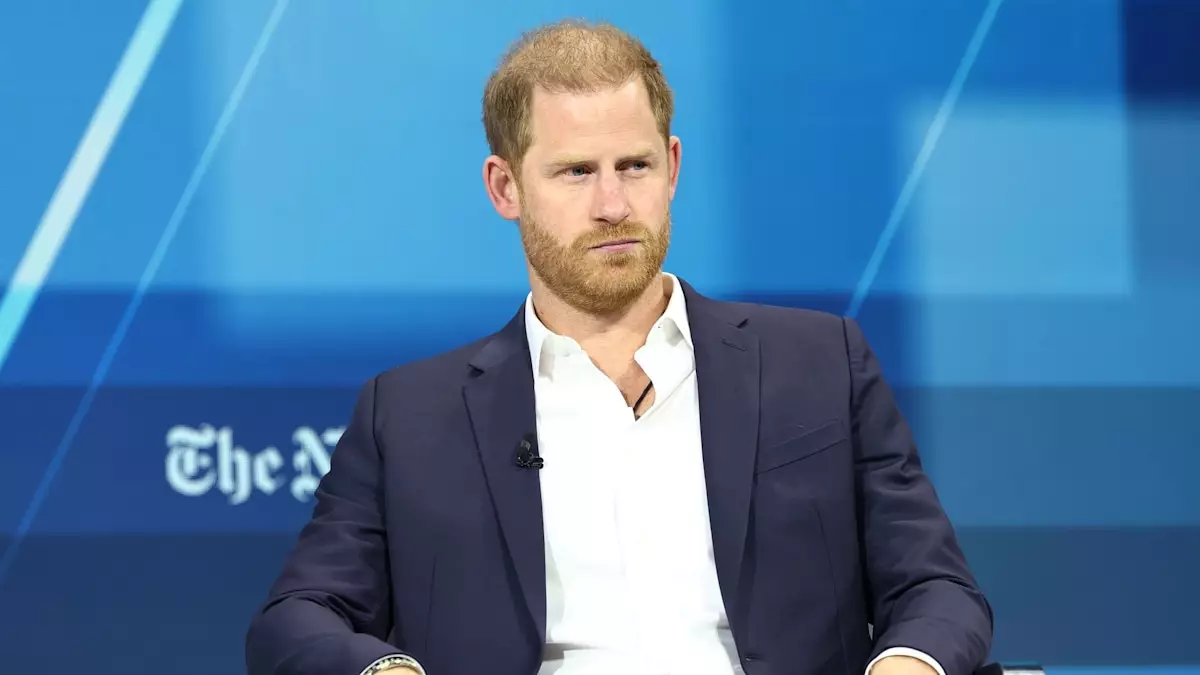In recent times, Prince Harry and Meghan Markle have found themselves under a glaring media spotlight, especially regarding their marriage. Speculation has surged following their noticeable absence from public events together since mid-August, leading to rampant rumors and conjecture about their relationship status. To counter this wave of gossip, Prince Harry took the opportunity to clarify matters during the New York Times 2024 DealBook Summit, where he addressed the intense public fascination with his marriage and the ongoing misinformation surrounding it.
During the summit, Harry engaged with Times columnist Andrew Ross Sorkin, who deftly broached the subject of media scrutiny. Sorkin remarked on the sensational interest surrounding Harry and Meghan, highlighting the numerous articles that speculate on why the couple has not been seen together. “You should have known!” Harry retorted, pointing out the absurdity of the situation. The exchange illuminated a significant aspect of modern celebrity culture—an insatiable curiosity that often crosses the line into invasive obsession.
Harry’s candidness regarding the media’s portrayal of his family was refreshing yet sobering. He humorously noted that according to the press, he and Meghan had moved homes or faced divorce multiple times, a stark reminder of how distorted reality can become in the public eye. This highlights the broader issue of celebrity relationships being viewed through a lens of sensationalism rather than humanity.
Prince Harry did not shy away from expressing his discomfort with how misinformation can shape public perception. He remarked that navigating the erroneous narratives can be exhausting, illustrating the emotional toll it takes when one’s private life is constantly on display. “Ignoring it” became his chosen method of coping. “The main goal is being the best husband and dad,” he stated, echoing an overarching desire for normalcy amid chaos.
His experiences with unfounded rumors have not only impacted his own life but reflect a larger commentary on the digital age and its implications. With the rise of social media, errant narratives can spread like wildfire, extending their reach far beyond traditional media outlets. This phenomenon forces public figures to contend with a reality where the line between fact and fiction becomes increasingly blurred.
The topic of media intrusion strikes a deeply personal chord for Harry. Citing the tragic loss of his mother, Princess Diana, to media scrutiny, he reflected on how it has scarred his perceptions growing up in the limelight. Harry acknowledged that his lived experiences grant him a unique perspective on the pervasive nature of falsehoods. “I’ve seen stories written that aren’t based on reality,” he divulged, expressing the weight that such recognitions carry.
This narrative isn’t just about Harry and Meghan but resonates broadly in today’s sociocultural climate where the public’s thirst for scandal often overshadows compassion for the individuals involved. It serves as a call to recognize the human beings behind the headlines, a plea for empathy in place of judgment.
As Prince Harry continues to navigate life with Meghan by focusing on their family and purpose, a crucial take-home message emerges from his summit remarks. The couple’s choice to prioritize one another and their children amid relentless public interest speaks volumes about their commitment to each other. Despite the digital noise, their determination to forge a path that prioritizes family values encapsulates hope in a space often driven by chaos.
While observers might speculate endlessly, the essence of Harry and Meghan’s relationship is rooted in shared aspirations, love, and resilience. In a world obsessed with narrating every detail of celebrity lives, perhaps we should reflect instead on what it means to grant them the space to define their own story. After all, amidst the noise of speculation and rumor, their reality remains uniquely theirs to shape.

